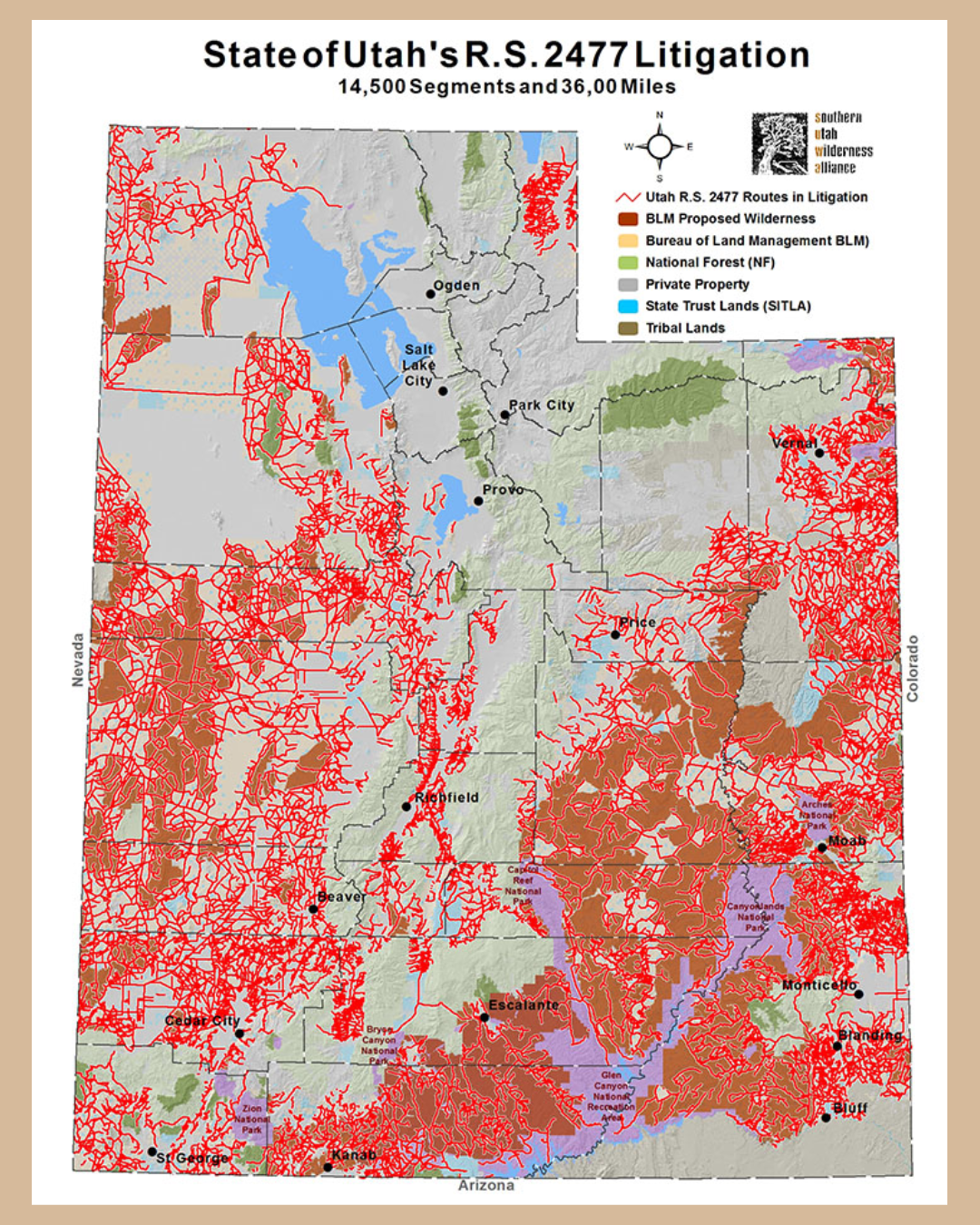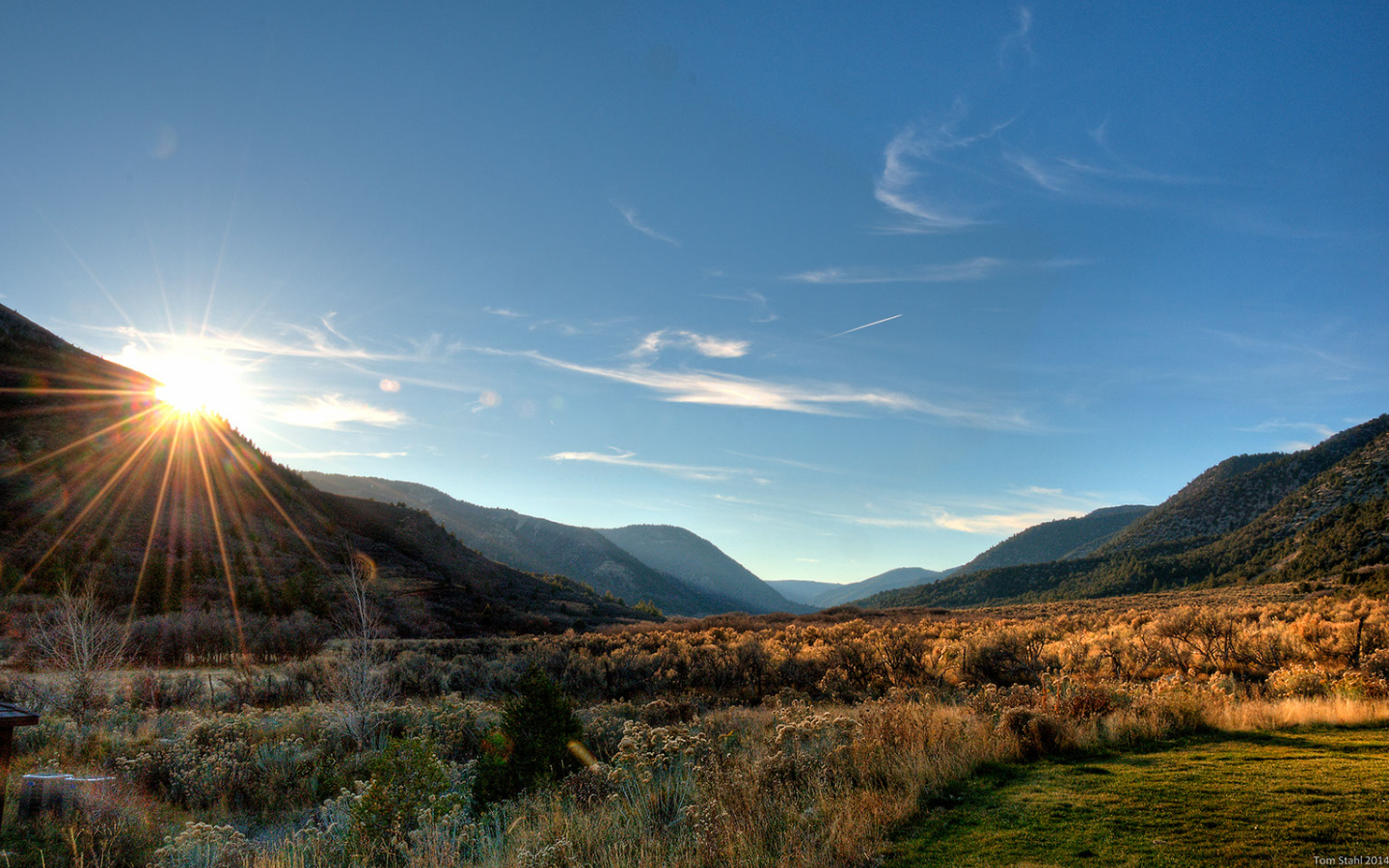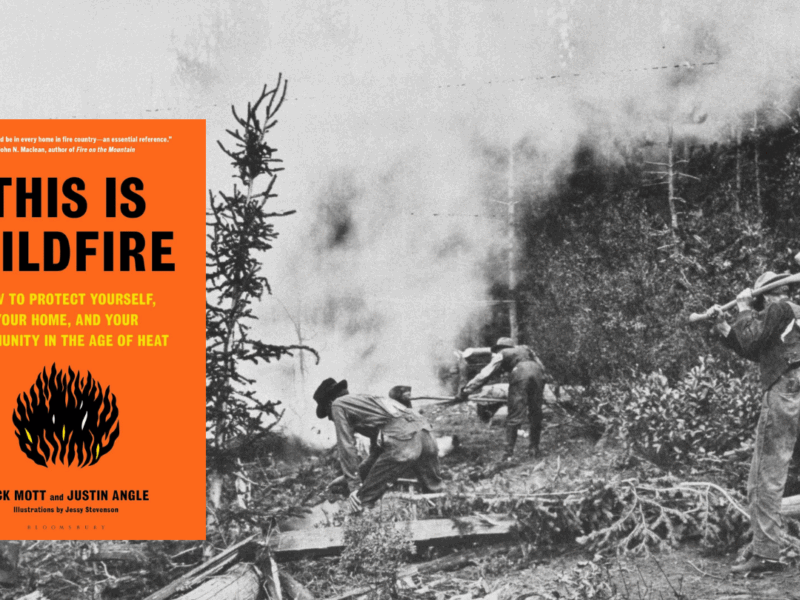A federal district judge’s interpretation of a controversial statute could open a pandora’s box of litigation over every footpath and service road on private property in the West.
On the Western Slope of Colorado’s Rocky Mountains, tucked between the Book Cliffs and acres of sage, beaver ponds, aspen, and evergreens, The High Lonesome Ranch, Colorado is a Western land lover’s dream. This iconic landscape is home to diverse wildlife and key habitat corridors. The value of these natural wonders is not lost on the ranch’s owners. For 28 years, this working guest ranch has been committed to conserving and regenerating its important wildways and watersheds. Relying on conservation efforts such as adaptive grazing and regenerative agriculture, the ranch strives to return the land to its natural state.
But today the ranch faces a new battle, one that threatens the good work the ranch has done and sets damaging precedent that could limit landowners’ rights going forward.
The case of The High Lonesome Ranch, LLC v. Garfield County, Colorado is particularly significant because, if upheld, the legal reasoning presented by the judge would allow rampant government takings for roadways across private lands under RS 2477 and adverse use claims.
The case came about after Garfield County decided it wanted to increase easy, motorized access to public lands by forcing the opening of roads across private lands. While most of the area’s public lands are already accessible to the public by 4-wheeler, foot or horseback, this apparently was not enough to satisfy access proponents hoping to rev their engines across ever more terrain.
Garfield County commissioners took their first aim at The High Lonesome Ranch, nestled in the North Dry Fork Valley. In 2015, the county asserted that the ranch’s service roads were in fact the continuation of County Road 200, also known as the North Dry Fork Road, declaring that these “public highways” lying entirely within the ranch’s private boundaries should be open to unrestricted public access.
The assertion ran contrary to previous state court rulings, the property owners’ understanding from intensive due diligence prior to purchase, and the previous owners’ actions. The county cited Revised Statute (RS) 2477, a one-line law written in 1866 that states simply and confoundingly, “the right-of-way for the construction of highways across public lands not otherwise reserved for public purposes is hereby granted.” The county demanded that the ranch remove their gate and allow unfettered vehicle access across six miles of private lands. The High Lonesome Ranch sued.
In December, a judge in the U.S. District Court for the District of Colorado cobbled together RS 2477 and adverse use interpretations to rule in favor of the county. The ranch was ordered to open gates that had been locked for decades. During the trial, the judge said he was “not convincible” that the roads on The High Lonesome Ranch were private, despite clear state requirements that claimants back their RS 2477 claims with evidence of use as a “public highway” before 1976.
In its ruling, the court also stated the roads should be opened to the public because they could be used to access federal BLM land bordering the ranch. In reality, and as the court itself acknowledged, the public has always had access to the federal lands adjacent the ranch by ATV, horseback, and on foot. And it still does today.
The case could put property owners around the West at risk of new R.S. 2477 claims, violate basic constitutional rights against the government taking of private lands, and open the door for litigants to claim “adverse use” in order to gain unprecedented access to private lands.
The High Lonesome Ranch in Colorado has taken its case to the 10th Circuit Court of Appeals in a bid to defend decades of restoration work, not to mention peace and quiet, from an RS 2477 road claim by Garfield County. RS 2477 claims are on the rise as motorized recreationalists demand more and easier access to remote places.
“The ruling is contrary to previous state court rulings, and it also goes against important constitutional principles,” says Frederick R. Yarger, one of the attorneys for the ranch. This puts landowners across the West in an untenable position: previous state court rulings on whether a road across a property is private or public are not reliable. “I think it’s legitimate for property owners to worry that this opinion will open the door to future litigation,” says Yarger.
Legal experts believe this case has the potential to affect property owners in the West in two important ways. If upheld, other judges could use this case as precedent to take away property from landowners who did their due diligence, bought and cared for their property, and had no reason to believe they were buying land traversed by a supposed century-old “public highway.” This case also lowers the bar significantly for claims of “adverse use,” making it easier for anyone who wants to access private land to have their local government order those gates opened to public.
As an organization representing the stewardship of more than 14 million acres of private and public stretching from Mexico to Canada, Western Landowners Alliance strongly believes this case is important not just for landowners but for everyone who cares about the health and integrity of western landscapes. The alliance is preparing an amicus curiae brief for the 10th Circuit.
“WLA has stayed out of legal battles up to now, but this case is too important to the future of the West to stand on the sidelines,” says WLA chairman Jeffrey Laszlo. “The court needs to hear from impacted stakeholders. A ruling in favor of RS2477’s legitimacy will have severe consequences for property rights, working lands and wildlife.”
RS 2477: a dangerous double-edged sword
Conservation groups are also watching the 10th Circuit closely in The High Lonesome Ranch, LLC v Garfield County, Colorado case. But their fears are focused on the impacts a broad interpretation of RS 2477 would have on wildlife, peace and solitude in America’s remote public lands. In Utah, in order to open more motorized access, claims have been filed on 36,000 miles of public lands around the Grand Staircase-Escalante National Monument. “Some proponents of RS 2477 claims are attempting to weaponize the statute to benefit special interest groups, predominantly off-highway vehicle users, by arguing that every two-track and cow path in western states is a public highway, as long as it existed on the ground prior to the statute’s repeal in 1976,” says Southern Utah Wilderness Alliance (SUWA) staff attorney Michelle White.

White, who has helped represent SUWA and other environmental nonprofit organizations in more than 20 RS 2477 lawsuits, continues, “These expansive claims threaten to carve up public lands in a spider web of maintained and improved roads, fragmenting wildlife habitat and impeding the federal government’s ability to manage public lands for resources and values other than motorized recreation.”





